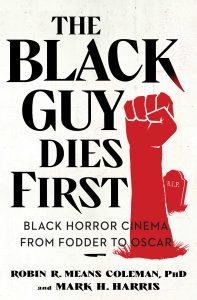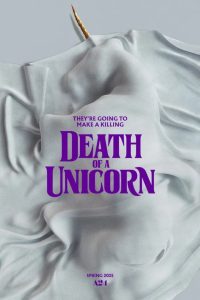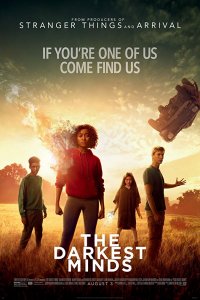RoboMom: Arley Sorg and Josh Pearce Discuss Jung_E
 Jung_E frontloads a pile of fairly unnecessary background worldbuilding, but the important bits are that they’ve developed the means to put human brains into robots, and that two major factions have been at war for 80 years. When Yun Jung-yi (Kim Hyun-Joo), one of the best, most inspiring fighters gets killed in action, of course they build a robot that looks exactly like her: Jung_E; and of course they put Yun Jung-yi’s brain inside the robot. But before they send her back into action, they need to figure out how and why she died. Leading the project – of course – is her daughter, Yun Seo-hyun (Kang Soo-youn*). A mostly absent-from-screen enemy army poses an underlying threat, but the real antagonist turns out to be the program’s director, Kim Sang-Hun (Ryoo Kyung-Soo). Kim Sang-Hun starts out as emotionally unpredictable, and ramps up to volatile before becoming outright villainous.
Jung_E frontloads a pile of fairly unnecessary background worldbuilding, but the important bits are that they’ve developed the means to put human brains into robots, and that two major factions have been at war for 80 years. When Yun Jung-yi (Kim Hyun-Joo), one of the best, most inspiring fighters gets killed in action, of course they build a robot that looks exactly like her: Jung_E; and of course they put Yun Jung-yi’s brain inside the robot. But before they send her back into action, they need to figure out how and why she died. Leading the project – of course – is her daughter, Yun Seo-hyun (Kang Soo-youn*). A mostly absent-from-screen enemy army poses an underlying threat, but the real antagonist turns out to be the program’s director, Kim Sang-Hun (Ryoo Kyung-Soo). Kim Sang-Hun starts out as emotionally unpredictable, and ramps up to volatile before becoming outright villainous.
There are a lot of films developed and produced by streaming services these days, ranging from pretty good to pretty bad to perhaps the worst thing a film can be: boring. Sang-ho Yeon’s Jung_E lands in the “pretty good” spectrum, though looks – or ads – can sometimes be deceiving.
Josh: I was actually kind of disappointed with this movie. The preview made it look like more of a live action Ghost in the Shell.
Arley: I didn’t watch a preview, I just saw the poster image, so I didn’t know what to expect.
Josh: I thought there was going to be more action, but it ended up being mostly one action scene over and over.The middle was mostly just existential angst. I got to the one hour mark, and I was surprised that I was already so far into the film because I kept expecting the plot to ramp up by then, but it hadn’t. It was mostly worldbuilding, or dealing with characterization that I felt had already been well-established. The preview focused on “our world’s greatest soldier will now end the war.” But the war is not really happening on screen. There’s no soldiering. You’re stuck in a lab talking about, “What does this robot do and how do we get the AI out of her brain?”
Arley: I saw the drama between the daughter and the mother, and the daughter’s sense of place in the world, and her guilt, as the main points of the movie. It’s really about them, with science fictional dressing. I really enjoyed that aspect, though – I got into the performances, I got into the central story and the main character’s story arc. I thought both Kim Hyun-Joo and Kang Soo-youn had powerful moments, in terms of performance. In terms of the science fiction stuff, you know, there are some cool visual parts. But if we’re looking at it as a “science fiction movie,” I think you could easily write this as a non-science-fiction movie without changing the key parts much. The plot hinges on a reveal, or a discovery, and that reveal could have been delivered any number of other ways to similar emotional impact.
Josh: That’s what I’m saying. It ultimately did not feel like the science fiction was integral to the story.
The science fiction is pretty cool in places, though. There are a number of interesting ideas that come up, but many of them are dropped into the story and left behind, rather than explored. You might find this adds texture and depth to the world, or you might feel like these are missed opportunities which leave you unsatisfied – especially if you tend to be an avid science fiction reader. The visuals are decent, with a few standout scenes or moments. A shot where Jung_E is stuck, helpless, and in clear agony, is as striking as it is terrible. Far from gratuitous, the moment serves layered purposes: to not only demonstrate the building cruelty of the budding antagonist, but also to highlight the dehumanization of a hero rendered state property; and the nature of social agreement in processes of dehumanization, as the lab techs all comply with things they aren’t necessarily comfortable with. A few shots later on show the genius of the animators, when we see a robot without a human-like face effectively use nonverbal affection and other subtle (human) cues.
Arley: There were moments that looked a little video game-ish. But overall I thought it looked good.
Josh: The effects are pretty good. They’re rendering mostly flat, robotic shapes, which is a lot easier to do than fur or human skin. So a lot of it you can just gloss over – yeah the robots look robotic. And there were some creepy shots, like when the unskinned robots woke up and their faces just turn, you’re like, ooh, that’s creepy. That’s pretty good.
Arley: The “surprise” with the program’s director was fun. I mean, I called it, I thought it was pretty obvious, but I still enjoyed it. And he was such a character. The surprise kind of better explains why he is the way he is.
Josh: I did find him really annoying, until I realized, oh, you’re supposed to be like this, it’s completely intentional.
 If you’re like us and you watch a lot of genre films, this one will remind you of so many things. More obvious touchstones might be RoboCop, and depending on your threshold, maybe Universal Soldier. There are notes of Blade Runner, Total Recall, Terminator: Salvation, and more. In fact, this could make a good drinking game: take a shot every time Jung_E reminds you of a classic. These could be deliberate nods, unconscious replication, or just the fact that some degree of similarity is inevitable when you have some kind of “sentient robot” or “robot human fusion” film, it’s hard to say. Fortunately, it’s not quite pastiche or derivative: everything does come together in a way that feels fresh enough, unique enough, and entertaining enough.
If you’re like us and you watch a lot of genre films, this one will remind you of so many things. More obvious touchstones might be RoboCop, and depending on your threshold, maybe Universal Soldier. There are notes of Blade Runner, Total Recall, Terminator: Salvation, and more. In fact, this could make a good drinking game: take a shot every time Jung_E reminds you of a classic. These could be deliberate nods, unconscious replication, or just the fact that some degree of similarity is inevitable when you have some kind of “sentient robot” or “robot human fusion” film, it’s hard to say. Fortunately, it’s not quite pastiche or derivative: everything does come together in a way that feels fresh enough, unique enough, and entertaining enough.
Josh: There’s this shot where they show her mom, Jung-yi, as an action figure. That’s a really good metaphor for what’s happening. This theme of reducing a personality or an identity to basically an IP that can be copied and sold. That’s a really interesting ethical question that doesn’t really get expounded upon as much as they could have.
Arley: I really liked that, too. And I liked the whole concept of, well, what can you afford? When you die, can you afford to be considered an individual, with individual rights? Or do you get turned into a drone? I thought that was an amazing literalizing of wealth disparity.
There are a few glitches and mishaps that may distract some viewers. For example, a scene where a robot is lifting another robot by the neck and choking it. Does this make sense? Is there a way to explain it? It could be one of those things that has an explanation behind the scenes, but that probably won’t seem to make sense to a lot of folks when they’re watching the film. We both found some of the establishing or setting shots confusing at times. Is this deliberate disorientation? Was it an editing error, or even a continuity error? Or was it simply that we both missed some detail that would have helped us follow the visual content?
Josh: Should we adjust our bar or expectations for direct-to-streaming movies? I liked Space Sweepers a lot.
Arley: I do think, at least for me, most Netflix movies aren’t that great. They crank out a lot of content. A lot of it is mediocre. So, I think this was good for a Netflix movie, or a streaming service movie. For me, not as good as Space Sweepers. But it’s better than a lot of shit that I’ve seen on streaming services.
Josh: Yeah, well, it’s not as good as Train to Busan, which was the director’s other film.
Arley: But it’s typical for creators to have a masterpiece, and to not be able to really compare the rest of their work to that masterpiece.
Josh: That’s kind of why I was pinning my hopes on this a little bit higher, because of the team behind it, and because Korean science fiction has been fairly solid, lately.
Arley: You liked the last one more than I did – Alienoid.
Josh: Yeah, that was that was a whole other beast though. I also like anything that Bong Joon Ho does — Parasite‘s not sci fi, but all his other stuff is speculative.
Arley: My recommendation is: it’s on Netflix. If you have Netflix, you might as well watch it.
Josh: If you’re looking for a sci-fi movie and you already have Netflix, sure. There’s enough in it to hold your attention and it’s short, so it doesn’t overstay its welcome. It brings up some interesting points and doesn’t follow through on them, but at least it raises questions, which I appreciate in a science fiction story. Like, at least it generates some ideas.
Arley: In fact, later in the movie, the entire frame kind of changes, and it becomes another idea or question you don’t see very often in science fiction war narratives.
Parts of this might have been rushed, and parts of it felt like they were in a future exploring scientific innovations that we’ve already discovered – so, perhaps, under-researched. Parts of it felt extraneous and over-explained while other parts seemed underserved. This isn’t what you’d call rigorous science fiction, nor is it an action-heavy robot-driven war film. But if you enjoy well-portrayed, somewhat subtle, mother-daughter drama in a pretty interesting science fiction setting, with pops of cool science fiction moments, you will probably enjoy this one.
* Kang Soo-youn (also seen rendered as Kang Soo-yeon) died May 7, 2022, after filming concluded (according to Wikipedia) but before the film’s release.
Directed & written by: Sang-ho Yeon
Starring: Woo-Yeol Han, Kim Hyun-joo, Kang Soo-youn, Lee Dong-Hee, Lee Ga-Kyung, So-yi Park, Uhm Ji-won, Yun Ki-Chang, Sun-hyuk Kim, Ryu Kyung-Soo, Min-jae Shin
Note: names listed as they are transliterated in IMDB
 Arley’s Not-So-Short Take on The Black Guy Dies First, Robin R. Means Coleman & Mark R. Harris (Saga 9781982186531, $24.99, 336pp, tp) February 2023.
Arley’s Not-So-Short Take on The Black Guy Dies First, Robin R. Means Coleman & Mark R. Harris (Saga 9781982186531, $24.99, 336pp, tp) February 2023.
Don’t get it twisted: This isn’t a book which is just ranting about the inequities of the film industry, and by extension, of the United States – although I probably would have liked that, too. The Black Guy Dies First is fun, informative, approachable, and, really, written for anyone who is a movie buff. There’s enough history and information here to improve any cinephile’s knowledge base, and there are so many fascinating moments used as focal points that even more casually interested readers will find it a compelling book. But let me take you through my personal journey, first.
A year ago I rewatched Stanley Kubrick’s 1980 film The Shining, based on Stephen King’s 1977 novel. I hadn’t watched it in quite a long time, and a lot had changed about my views on story, among other things. I wanted to see if I still thought it was awesome. As the ending credits rolled, I mulled through all the thoughts and feelings. One thing stood out above everything else: the Black guy* is the only person in the film who actually gets murdered. Brutally murdered, mind you; murdered after spending the entirety of the film trying to help this white kid, AND after going to extraordinary lengths to reach the hotel. Worse, I pointed this out to the two white guys who I’d watched the film with, and they found the detail… unimportant.
40 years after The Shining, in 2020, William Eubank directed a horror film called Underwater. Proving that many filmmakers either just don’t care or don’t learn or both, they killed off the lone Black character** first.
There are many things in American culture that folks within certain groups are painfully aware of, but that people outside those groups either don’t know, or find unimportant. The despicable treatment of Black folks (and, largely, anyone who isn’t white) by the film industry is, in the Black American consciousness, obvious. Rap group Public Enemy even released a song about it in 1990, “Burn Hollywood Burn” (on album Fear of a Black Planet), a collaboration which also featured Ice Cube and Big Daddy Kane: “For all the years we looked like clowns/The joke is over, smell the smoke from all around.” The resentment captured in the song isn’t just about the treatment of Black folks by the film industry, but also the willingness of so many (white) people to see that treatment as “unimportant.”
So, I felt great joy when the advanced review copy of The Black Guy Dies First came in to the Locus office. It is common for people of color who grow up around a lot of white folks in the US to have to deal with various kinds of race-based mistreatment, and the emotional damage of these mistreatments are exacerbated by that all-too-common interaction wherein we tell a (white) person about it and they see it as “unimportant.” I don’t know which editor over at Saga Press made this TBGDF happen, but when I saw this book, I wanted to catch a flight to New York and give them a hug.
The Black Guy Dies First marries interesting statistics with sharp observations and occasional humor. Early on, a section called “Frequent Dyer Awards” really puts things into perspective. This shows how many on-screen deaths certain Black actors performed, such as Charles S. Dutton, who “hasn’t met a White person for whom he isn’t willing to lay down his life,” with six confirmed deaths, usually sacrifices to save white characters.
From there, the book continues to be an informative and crucial examination of film history. While it centers on horror, it also covers aspects of film which are so often glossed over or ignored.
Examples include a discussion on the rise of so-called Blaxploitation, initiated by a decline in film income as a strategy to “cash in on an undeserved demographic,” but having had an important impact on the entire industry nonetheless. There’s an examination of the development of character archetypes, and the way that “everyone tends to be defined by their hobby or personality, something that gives them a modicum of depth – everyone, that is, except the Black Guy, whose expendable status is based solely on their skin color….” Then, on to the instances of film that later played with or even made fun of those established expectations. Later, the book discusses the diminishing incidents of deaths of Black characters accomplished primarily by simply excluding them from film. Finally, we get to the double-edged wonder of complex, Black centered projects, which always seem to be met with backlash from people who resent changes to the status quo.
Fun installments include “The Black Character Horror Movie Survival Guide”, which is both hilarious and biting in the ways that it uses humor to reveal the limitations cinema often places on Black characters (“Tip #3: Be funny”). “Ain’t Too Proud To Die: Black Oscar Nominees Who Died in Horror Movies” is similarly hilarious and depressing, demonstrating that even the best Black actors are required to die if they want to get roles, such as Laurence Fishburn with three onscreen deaths and Samuel L. Jackson with eight. And “Incognegroes: Black Actors Who Played Famous Movie Monsters”, which includes Bolaji Badejo, “…between six seven and six ten, depending on who you ask – and lanky, a frame that led him to being plucked from obscurity for the role of the alien Xenomorph in Ridley Scott’s Alien.”
Writers and filmmakers writing Black characters should study the sections on stereotypes and typical roles. In fact, so should film and book reviewers. These segments aren’t just informative, they are also great practical tools to identify lazy, trite, and downright offensive story elements. Importantly, while these stereotypes were mostly developed by the racists of the past using misconceptions and limited imagination, they still persist – and not just in horror.
The Black Guy Dies First ultimately digs into and celebrates the long, rich history of Black folks in cinema, as well as Black centered cinema. It’s entertaining and depressing; and yes, it’s also funny. More than this, it’s triumphant, as a celebration should be.
Among all these things, this book is a wonderful key to understanding the cultural interplay between US cultures and film, as well as to understanding, to a degree, why movies are the way they are today. A Manton Moreland quote from early in the book sticks with me. Moreland was known for a number of roles, including a stereotypical role as a “happy-go-lucky, dim, nonthreatening sidekick” in detective movies. The kind of casting that people of color would see and immediately call “racist” while apologists – seeing “nothing wrong” – might say things about these roles like, “at least he was getting work,” probably along with something like, “those things were more acceptable back then – now everything has changed.” In a 1959 interview (you know: “back then”) Moreland said, “Why shouldn’t the role be written so that I can solve the murder sometime?”
Why, indeed.
Undoubtedly, white film makers saw his point as “unimportant.” After a slew of film and TV roles, he was murdered on-screen in 1967 film Spider Baby. A far cry from landing a lead role, he was reduced to playing a nameless character, one whose death at white hands served mainly as shock value.
This book is important. But look, dear reader, you don’t have to see the world as I do to enjoy it. White, Black, everybody and anybody who has an interest in film or even just history – this is a must-read, and it’s one you’ll surely enjoy.
*Scatman Crothers as Dick Hallorann
** Mamoudou Athie as Rodrigo Nagenda

JOSH PEARCE has stories and poetry in Analog, Asimov’s, Beneath Ceaseless Skies, Cast of Wonders, Clarkesworld, IGMS, Nature, and more. Find him on Twitter: @fictionaljosh, or at fictionaljosh.com. One time, Ken Jennings signed his chest.
ARLEY SORG, Senior Editor, has been part of the Locus crew since 2014. Arley is a 2022 Kate Wilhelm Solstice Award recipient. He is also a 2021 and 2022 World Fantasy Award finalist as well as a 2022 Locus Award finalist for his work as co-Editor-in-Chief at Fantasy Magazine. He is a 2022 Ignyte Award finalist in two categories: for his work as a critic, and for his essay “What You Might Have Missed” in Uncanny Magazine. Arley is Associate Editor and reviewer at Lightspeed & Nightmare magazines, columnist for The Magazine of Fantasy and Science Fiction, and interviewer at Clarkesworld Magazine. He grew up in England, Hawaii, and Colorado, and lives in the SF Bay Area. A 2014 Odyssey Writing Workshop graduate, he can be found at arleysorg.com – where he has started his own “casual interview” series with authors and editors – as well as Twitter (@arleysorg) or Facebook.
 While you are here, please take a moment to support Locus with a one-time or recurring donation. We rely on reader donations to keep the magazine and site going, and would like to keep the site paywall free, but WE NEED YOUR FINANCIAL SUPPORT to continue quality coverage of the science fiction and fantasy field.
While you are here, please take a moment to support Locus with a one-time or recurring donation. We rely on reader donations to keep the magazine and site going, and would like to keep the site paywall free, but WE NEED YOUR FINANCIAL SUPPORT to continue quality coverage of the science fiction and fantasy field.
©Locus Magazine. Copyrighted material may not be republished without permission of LSFF.







